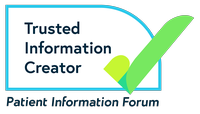Thyroid cancer: Understanding late effects of radiotherapy
Possible late or long-term side effects may happen months or years following radiotherapy treatment, and in some cases may be permanent. They may happen once, continue for a long time, or come and go. Sometimes they cannot be cured, but it might be possible to manage them.
You might have late effects not listed here, because everyone is different. They may also be caused by a different part of your cancer treatment. It is not possible to predict if you will get them and when they might happen, which can be difficult to come to terms with. Research and support for late effects of radiotherapy is growing.
Joining a support group can be a positive way to share your experiences, feel less alone, and come to terms with the physical and emotional impact of treatment. Ask your clinical team if you need more support or have any late effects at all.
This page looks at late side effects.
How likely am I to get late side effects?
Before treatment you will discuss and sign a consent form with your clinical oncologist or therapeutic radiographer. They will tell you what to expect, and you can ask questions and discuss any concerns you have about late effects. It’s important to know what you are consenting to and can help to take someone with you.
You can read different radiotherapy consent forms (HERE) based on the specific area being treated. These consent forms are packed with useful information about early and late side effects.(1)
When you consent to treatment, you agree that you understand that you have a chance of getting late side effects. Your team will use words like, Expected, Common, Less Common and Rare.
This table shows what these words mean.
| Wording on the consent form | % chance of side or late effect | How many patients will get this? |
|---|---|---|
| Expected | 50 to 100% | Between half and all patients |
| Common | 10 to 50% | Up to half of all patients |
| Less common | Less than 10% | Fewer than one in ten patients |
| Rare | Less than 1% | Fewer than one in 100 patients |
Possible late side effects
- Skin Changes: The treated area may become thin, dry, or change colour, and you might notice small spidery blood vessels appearing as lines (telangiectasia) . These changes can occur years after treatment. Be sure to take care of your skin and consult your doctor if you notice any of these changes.
- Lymphoedema: Skin, chin and soft-tissue swelling around neck and face.
- Dry mouth: Altered taste or loss of taste with possibility of some recovery over 18 months.
- Thyroid Problems (hypothyroidism): Radiotherapy can affect your thyroid gland, making it less active, which may cause fatigue and sluggishness. Your doctor can check your thyroid function with a blood test, and if necessary, provide hormone tablets to help increase your energy.
- Cancer-Related Fatigue: You might continue to feel fatigued even after treatment ends. For some, this fatigue can last for months or even years.
- Voice changes: this is common, if it becomes a problem it may be necessary to seek specialist help from a speech therapist.
Less common and rare late effects
- Narrow oesophagus: There is a small chance that treatment may cause your oesophagus (food pipe) to narrow, making it difficult to eat and drink. If this occurs, a hospital procedure called oesophageal dilation can help widen it again.
- Laryngeal chondronecrosis: It’s rare, but you may have permanent damage to your voice box. This may need specialist input from a speech therapist.
- Spinal Cord Damage: This is very rare but can lead to tingling sensations.
- Second Cancer: There is a very small chance that you could develop another type of cancer. This is rare, and depends on lots of different factors like age, area treated and radiation dose.
What can help with these late effects?
- Monitor Side Effects: Notify your treatment team right away if you notice any changes. Early detection can help address serious issues.
- Managing cancer-related fatigue: Food and drink, keeping active, keeping a fatigue diary, medicine like steroids and physiotherapy may all be options for managing fatigue. Speak to your doctor or medical team for advice; and learn more about managing cancer-related fatigue.
- Protect Your Skin: The treatment area may be more sensitive to the sun. Always cover up and use a high-factor sunscreen to protect your skin.
- Keep Moving: Gentle exercise can improve your well-being during and after treatment. Your treatment team can guide you on safe activities.
- Drinking fluids: Drinking plenty of fluids such as water and squash can help with fatigue and tiredness caused by your treatment. You can try diluted juice if you don’t like water.
- Alcohol use: Please follow the NHS guidelines on safe drinking levels and any instructions you get from your team on what is right for you, your diagnosis and your treatment. If in doubt, please ask your team.
- Stop smoking: If you are looking to stop or reduce smoking, there are services available to help you.
Always discuss any late effects with your treatment team, even if they aren’t listed here. Everyone’s experience is different. Your team can help you find ways to manage your symptoms effectively.
Further information
Support for patients and families • Radiotherapy UK

